A Nation Once Again
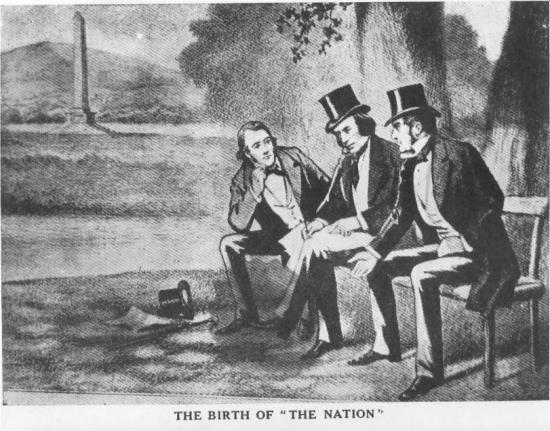
"A Nation Once Again" is a song, written in the early to mid-1840s by Thomas Osborne Davis (1814–1845). Davis was a founder of Young Ireland, an Irish movement whose aim was the independence of Ireland.
Davis believed that songs could have a strong emotional impact on people. He wrote that "a song is worth a thousand harangues". He felt that music could have a particularly strong influence on Irish people at that time. He wrote: "Music is the first faculty of the Irish... we will endeavour to teach the people to sing the songs of their country that they may keep alive in their minds the love of the fatherland."
"A Nation Once Again" was first published in The Nation on 13 July 1844 and quickly became a rallying call for the growing Irish nationalist movement at that time.
The song is a prime example of the "Irish rebel music" subgenre. The song's narrator dreams of a time when Ireland... (Continues)
When boyhood's fire was in my blood
(Continues)
(Continues)
Contributed by Lucone 2020/12/31 - 01:21
Song Itineraries:
Conflicts in Ireland
The Old Orange Flute
Anonymous
The Old Orange Flute è una canzone popolare irlandese, presumibilmente nata in ambienti unionisti alla fine del XIX secolo; secondo la versione inglese di Wikipedia la prima testimonianza scritta del testo risale al 1907.
L'autore del testo non sarebbe comunque identificabile con certezza.
Prima della guerra civile nell'Ulster, alla fine degli anni Sesssanta del XX secolo, i toni leggeri della canzone l'avevano resa popolare anche nel campo opposto; ne fanno fede le versioni dei Clancy Brothers e dei Dubliners.
L'autore del testo non sarebbe comunque identificabile con certezza.
Prima della guerra civile nell'Ulster, alla fine degli anni Sesssanta del XX secolo, i toni leggeri della canzone l'avevano resa popolare anche nel campo opposto; ne fanno fede le versioni dei Clancy Brothers e dei Dubliners.
In the County Tyrone, near the town of Dungannon
(Continues)
(Continues)
Contributed by Io non sto con Oriana 2018/11/10 - 19:15
Song Itineraries:
Conflicts in Ireland
The Wind That Shakes the Barley
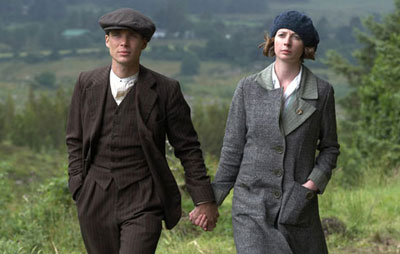
La canzone è un perfetto connubio tra canto d'amore e canto di protesta (rebel song) tratto dalla poesia omonima pubblicata in "Ballads, Romances and Song" da Robert Dwyer Joyce nel 1861 e abbinata alla melodia "The old love and the new love". Nel 1872 Robert Dwyer è emigrato a Boston, dove ristampa le sue poesie irlandesi con alcuni nuovi testi in "Ballads of Irish Chivalry".
"L'orzo che si muove nel vento" è diventato il simbolo dei ribelli irlandesi del 1798, pare che sulle fosse comuni dove venivano seppelliti i "croppy boys", crescesse l'orzo, germogliato dalle razioni di cibo che si portavano in tasca; così lo spirito del nazionalismo irlandese non poteva essere distrutto e tornava a rinasce. Non sta a indicare quindi solo una stagione, l'estate, è anche l'immagine che rievoca nel protagonista il dolore: il momento della scelta tra l'amore per la famiglia e la patria, la morte dell'amata... (Continues)
"L'orzo che si muove nel vento" è diventato il simbolo dei ribelli irlandesi del 1798, pare che sulle fosse comuni dove venivano seppelliti i "croppy boys", crescesse l'orzo, germogliato dalle razioni di cibo che si portavano in tasca; così lo spirito del nazionalismo irlandese non poteva essere distrutto e tornava a rinasce. Non sta a indicare quindi solo una stagione, l'estate, è anche l'immagine che rievoca nel protagonista il dolore: il momento della scelta tra l'amore per la famiglia e la patria, la morte dell'amata... (Continues)
I sat within the valley green,
(Continues)
(Continues)
Contributed by Cattia Salto 2018/3/26 - 16:16
Song Itineraries:
Conflicts in Ireland
Schooldays Over, Come on Then John
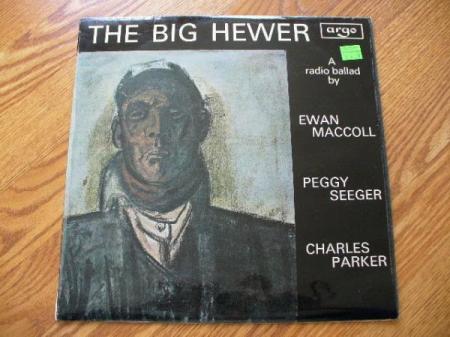
[1960]
Parole di Ewan MacColl
Musica di Ewan MacColl e Peggy Seeger
In "The Big Hewer - A Radio Ballad About Britain's Coal Miners", trasmissione radiofonica in onda nel 1960 sulla BBC Radio, prodotta da Charles Parker (1919-1980), scrittore, cantante ed attore teatrale. Il disco è del 1967, poi riedito nel 1999.
Si tratta della quarta di otto emissioni curate da MacColl e dalla Seeger tra il 1957 ed il 1964.
La coppia si avvalse della collaborazione di artisti prestigiosi, come Dave Swarbrick, A. L. Lloyd, Ian Campbell, Isla Cameron e Louis Killen.
Interpreta da molti, tra cui i Dubliners, i Chieftains, Dick Gaughan, Damien Dempsey, i Clancy Brothers,...
Pitman e collier sono entrambi sinonimi di miner, tre modi diversi che l'inglese ha per indicare il minatore del carbone...
Parole di Ewan MacColl
Musica di Ewan MacColl e Peggy Seeger
In "The Big Hewer - A Radio Ballad About Britain's Coal Miners", trasmissione radiofonica in onda nel 1960 sulla BBC Radio, prodotta da Charles Parker (1919-1980), scrittore, cantante ed attore teatrale. Il disco è del 1967, poi riedito nel 1999.
Si tratta della quarta di otto emissioni curate da MacColl e dalla Seeger tra il 1957 ed il 1964.
La coppia si avvalse della collaborazione di artisti prestigiosi, come Dave Swarbrick, A. L. Lloyd, Ian Campbell, Isla Cameron e Louis Killen.
Interpreta da molti, tra cui i Dubliners, i Chieftains, Dick Gaughan, Damien Dempsey, i Clancy Brothers,...
Pitman e collier sono entrambi sinonimi di miner, tre modi diversi che l'inglese ha per indicare il minatore del carbone...
Schooldays over, come on then John
(Continues)
(Continues)
Contributed by Bernart Bartleby 2018/1/29 - 21:42
Song Itineraries:
Child Abuse, The War of Labour: Emigration, Immigration, Exploitation, Slavery
The Nightingale
Anonymous
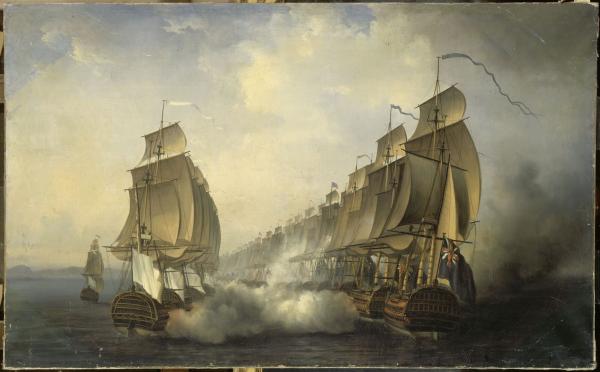
[XVIII° secolo]
Una shanty & love ballad settecentesca, classificata al n. 1093 delle Bodleian Libraries. Qui le date dei riscontri sono tutte ottocentesche ma The Nightingale è stato sicuramente il nome di una nave da guerra inglese impiegata contro i francesi negli ultimi due decenni del 700, durante la guerra d'indipendenza americana o le guerre rivoluzionarie.
Testo trovato su Mainly Norfolk: English Folk and Other Good Music, come interpretato da Eliza Carthy e Norma Waterson, rispettivamente figlia e moglie di Martin Carthy, nel loro album "Gift" del 2010.
In precedenza la canzone è stata incisa anche da Cyril Tawney, da The Clancy Brothers con Louis Killen, Frankie Armstrong e altri.
Una storia di amore impossibile, di sopruso e di guerra.
Un giovane contadino s'innamora, ricambiato, di una ragazza di famiglia benestante. I genitori di lei non solo osteggiano la relazione... (Continues)
Una shanty & love ballad settecentesca, classificata al n. 1093 delle Bodleian Libraries. Qui le date dei riscontri sono tutte ottocentesche ma The Nightingale è stato sicuramente il nome di una nave da guerra inglese impiegata contro i francesi negli ultimi due decenni del 700, durante la guerra d'indipendenza americana o le guerre rivoluzionarie.
Testo trovato su Mainly Norfolk: English Folk and Other Good Music, come interpretato da Eliza Carthy e Norma Waterson, rispettivamente figlia e moglie di Martin Carthy, nel loro album "Gift" del 2010.
In precedenza la canzone è stata incisa anche da Cyril Tawney, da The Clancy Brothers con Louis Killen, Frankie Armstrong e altri.
Una storia di amore impossibile, di sopruso e di guerra.
Un giovane contadino s'innamora, ricambiato, di una ragazza di famiglia benestante. I genitori di lei non solo osteggiano la relazione... (Continues)
Both young and old, I pray lend an ear
(Continues)
(Continues)
Contributed by Bernart Bartleby 2018/1/1 - 16:44
The Convict of Clonmel
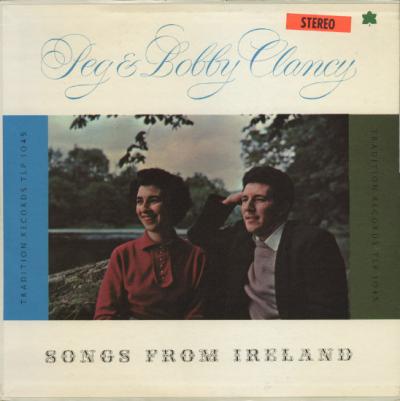
[1820s]
Nota anche con il titolo de “The Gaol of Cluain Meala”.
Versi del poeta di Cork Jeremiah Joseph Callanan (1795–1829).
Interpretata e incisa da moltissimi musicisti irlandesi, da Luke Kelly coi Dubliners a Tommy Sands con la Sands Family ai Dublin City Ramblers.
La “príosún Chluain Meala” (Clonmel, contea Tipperary) ha visto passare molti irriducibili irlandesi, dai Whiteboys, che nel 700 lottavano contro i latifondisti ed i loro abusi, ai Young Irelanders, precursori del repubblicanismo novecentesco…
Nota anche con il titolo de “The Gaol of Cluain Meala”.
Versi del poeta di Cork Jeremiah Joseph Callanan (1795–1829).
Interpretata e incisa da moltissimi musicisti irlandesi, da Luke Kelly coi Dubliners a Tommy Sands con la Sands Family ai Dublin City Ramblers.
La “príosún Chluain Meala” (Clonmel, contea Tipperary) ha visto passare molti irriducibili irlandesi, dai Whiteboys, che nel 700 lottavano contro i latifondisti ed i loro abusi, ai Young Irelanders, precursori del repubblicanismo novecentesco…
How hard is my fortune
(Continues)
(Continues)
Contributed by Bernart Bartleby 2014/8/8 - 14:00
Song Itineraries:
Conflicts in Ireland, From World Jails
The Green Fields Of France (No Man's Land)

Cover versions include:
Alaskan song writer 907Britt (2010), as "William McBride"[7]
Alex Beaton (1995), on the album The Water Is Wide
Angelic Upstarts (1986), on the album Power Of The Press
Asonance (2000), in a Czech version "Zelené francouzské pláně" ("The Green Fields of France"), on the album Alison Gross
Attila the Stockbroker (1987)
Chris A Butler (English Singer/Songwriter) as "The Green Fields of France"[8]
Bok, Muir & Trickett (1978)
Bob Dylan
Clare Bowditch, Tim Rogers and Gotye (2007)
Jake Burns, on his album Drinkin' Again
Celtic Tenors (2002), on the album So Strong
Celtic Thunder (2009), as "The Green Fields of France", on the album Take Me Home
The Chieftains
The Clancy Brothers
Liam Clancy
Cobbers (Australian folk band), (1979) live on the album "Bushland Dreaming"
The Corries
Damh the Bard (2009), as "The Green Fields of France", on the album Tales... (Continues)
Alaskan song writer 907Britt (2010), as "William McBride"[7]
Alex Beaton (1995), on the album The Water Is Wide
Angelic Upstarts (1986), on the album Power Of The Press
Asonance (2000), in a Czech version "Zelené francouzské pláně" ("The Green Fields of France"), on the album Alison Gross
Attila the Stockbroker (1987)
Chris A Butler (English Singer/Songwriter) as "The Green Fields of France"[8]
Bok, Muir & Trickett (1978)
Bob Dylan
Clare Bowditch, Tim Rogers and Gotye (2007)
Jake Burns, on his album Drinkin' Again
Celtic Tenors (2002), on the album So Strong
Celtic Thunder (2009), as "The Green Fields of France", on the album Take Me Home
The Chieftains
The Clancy Brothers
Liam Clancy
Cobbers (Australian folk band), (1979) live on the album "Bushland Dreaming"
The Corries
Damh the Bard (2009), as "The Green Fields of France", on the album Tales... (Continues)
DonQuijote82 2012/3/24 - 09:39
Whack Fol the Diddle (God Bless England)
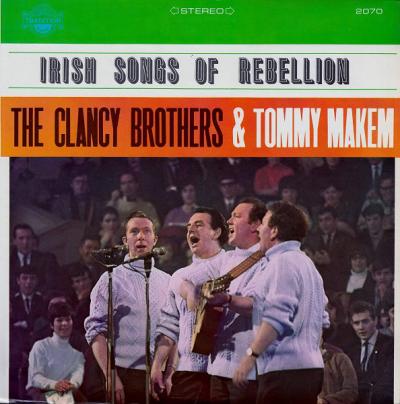
This song depicts England as a caring mother who looked after her rebellious children. Regardless of their misbehaviour, she was always around to comfort and guide her impetuous bunch of kids. Eventually the juveniles reach adulthood and they surprise their mother with civilised behaviour.
On the face of it Whack Fol The Diddle is just a rather sarcastic song, but we have to wonder whether Peadar Kearney, the writer who also wrote A Soldiers Song, would agree with this assessment.
Self-mockery, sarcasm and a sense for understatement was not uncommon for Peadar Kearney. In the song The Row In The Town for example he compares the Easter Rising, in which he had participated, with a row in the town indeed. Nevertheless the storyline of Whack Fol The Diddle is surprising, because Kearney followed his personal friend Michael Collins in the Civil War and joined the Free Staters. Their opponents,... (Continues)
On the face of it Whack Fol The Diddle is just a rather sarcastic song, but we have to wonder whether Peadar Kearney, the writer who also wrote A Soldiers Song, would agree with this assessment.
Self-mockery, sarcasm and a sense for understatement was not uncommon for Peadar Kearney. In the song The Row In The Town for example he compares the Easter Rising, in which he had participated, with a row in the town indeed. Nevertheless the storyline of Whack Fol The Diddle is surprising, because Kearney followed his personal friend Michael Collins in the Civil War and joined the Free Staters. Their opponents,... (Continues)
I'll sing you a song of peace and love,
(Continues)
(Continues)
Contributed by DonQuijote82 2011/4/9 - 12:11
Song Itineraries:
Conflicts in Ireland
Whiskey In The Jar
Anonymous
Questo tradizionale irlandese viene inserito per l'ultima strofa della versione dei Thin Lizzy, poi ripresa anche dai Metallica:
Ora ad alcuni uomini piace pescare ed ad altri andare a caccia di uccelli
Ed ad alcuni uomini piace sentire, sentire il cannone sparare con fragore
Io amo dormire, specialmente nella camera della Mia Molly
Ma qui sono in prigione, sono qui son con una palla (al piede) e una catena che mi lega sì
Whiskey in the Jar è una canzone tradizionale irlandese che parla di un bandito (solitamente dei monti di Cork e Kerry) tradito dalla propria moglie o dalla propria amante. È una delle canzoni tradizionali irlandesi più eseguite ed è stata incisa da artisti come i The Dubliners, The Pogues, Peter, Paul and Mary, The Highwaymen, Roger Whittaker, the Clancy Brothers e Tommy Makem, The Irish Rovers, Poxy Boggards, The Limeliters, King Creosote, The Shatilla Shakers e... (Continues)
Ora ad alcuni uomini piace pescare ed ad altri andare a caccia di uccelli
Ed ad alcuni uomini piace sentire, sentire il cannone sparare con fragore
Io amo dormire, specialmente nella camera della Mia Molly
Ma qui sono in prigione, sono qui son con una palla (al piede) e una catena che mi lega sì
Whiskey in the Jar è una canzone tradizionale irlandese che parla di un bandito (solitamente dei monti di Cork e Kerry) tradito dalla propria moglie o dalla propria amante. È una delle canzoni tradizionali irlandesi più eseguite ed è stata incisa da artisti come i The Dubliners, The Pogues, Peter, Paul and Mary, The Highwaymen, Roger Whittaker, the Clancy Brothers e Tommy Makem, The Irish Rovers, Poxy Boggards, The Limeliters, King Creosote, The Shatilla Shakers e... (Continues)
As I was going over the far famed Kerry mountains
(Continues)
(Continues)
Contributed by DonQuijote82 2010/10/22 - 19:40
MacPherson's Lament
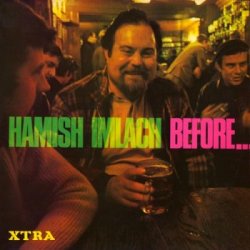
[1700]
Album “Before and After” (1967)
Si narra che le strofe originali di questa canzone siano state scritte dal bandito e musicista gypsy scozzese Jamie Macpherson (o James MacPherson) poco prima di essere impiccato. “MacPherson's Lament”, o “M'Pherson's Rant”, era già uno standard popolare quando nel 1788 il grande poeta Robert Burns ne riscrisse i versi reintitolandola “M'Pherson's Farewell” ma conservando la melodia originaria, anch’essa composta dall’autore e protagonista di questa che è ancora oggi – insieme a Johnny Faa, or The Gypsy Laddie di cui, non a caso, condivide la tematica di fondo - una delle ballate scozzesi più famose.
Del “Lamento di MacPherson” esistono innumerevoli versioni e moltissimi sono gli artisti ad averla nel proprio repertorio. Difficile stabilire chi l’abbia incisa per primo. Io l’ho attribuita arbitrariamente ad Hamish Imlach, ma avrei potuto anche assegnarla... (Continues)
Album “Before and After” (1967)
Si narra che le strofe originali di questa canzone siano state scritte dal bandito e musicista gypsy scozzese Jamie Macpherson (o James MacPherson) poco prima di essere impiccato. “MacPherson's Lament”, o “M'Pherson's Rant”, era già uno standard popolare quando nel 1788 il grande poeta Robert Burns ne riscrisse i versi reintitolandola “M'Pherson's Farewell” ma conservando la melodia originaria, anch’essa composta dall’autore e protagonista di questa che è ancora oggi – insieme a Johnny Faa, or The Gypsy Laddie di cui, non a caso, condivide la tematica di fondo - una delle ballate scozzesi più famose.
Del “Lamento di MacPherson” esistono innumerevoli versioni e moltissimi sono gli artisti ad averla nel proprio repertorio. Difficile stabilire chi l’abbia incisa per primo. Io l’ho attribuita arbitrariamente ad Hamish Imlach, ma avrei potuto anche assegnarla... (Continues)
Farewell, ye dungeons dark and strong, farewell, farewell to thee
(Continues)
(Continues)
Contributed by The Lone Ranger 2010/5/6 - 09:06
Song Itineraries:
Death penalty: murder by the power
Kevin Barry
Anonymous
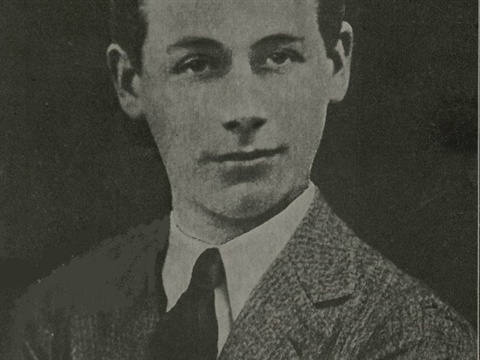
[1920]
Sull’aria della popolare “Rolling Home to Dear Old Ireland”
Una delle più note ballate repubblicane irlandesi dedicata a Caoimhín de Barra, in inglese Kevin Gerard Barry, che nel 1920, appena diciottenne, fu il primo militante dell’IRA ad essere giustiziato dagli inglesi. L’esecuzione del giovanissimo Barry, insieme alla morte, avvenuta pochi giorni prima, del sindaco di Cork Terence MacSwiney in seguito ad uno sciopero della fame ad oltranza, suscitarono un’ondata di sdegno in Irlanda e in tutta Europa e innescarono un’escalation della violenza nella guerra d’indipendenza irlandese (1919-1922).
La canzone è stata interpretata, tra gli altri, da Wolfe Tones, Clancy Brothers, Earl Robinson, Paul Robeson e Leonard Cohen.
Sull’aria della popolare “Rolling Home to Dear Old Ireland”
Una delle più note ballate repubblicane irlandesi dedicata a Caoimhín de Barra, in inglese Kevin Gerard Barry, che nel 1920, appena diciottenne, fu il primo militante dell’IRA ad essere giustiziato dagli inglesi. L’esecuzione del giovanissimo Barry, insieme alla morte, avvenuta pochi giorni prima, del sindaco di Cork Terence MacSwiney in seguito ad uno sciopero della fame ad oltranza, suscitarono un’ondata di sdegno in Irlanda e in tutta Europa e innescarono un’escalation della violenza nella guerra d’indipendenza irlandese (1919-1922).
La canzone è stata interpretata, tra gli altri, da Wolfe Tones, Clancy Brothers, Earl Robinson, Paul Robeson e Leonard Cohen.
In Mountjoy jail one Monday morning
(Continues)
(Continues)
Contributed by Alessandro 2010/1/20 - 14:27
×
![]()


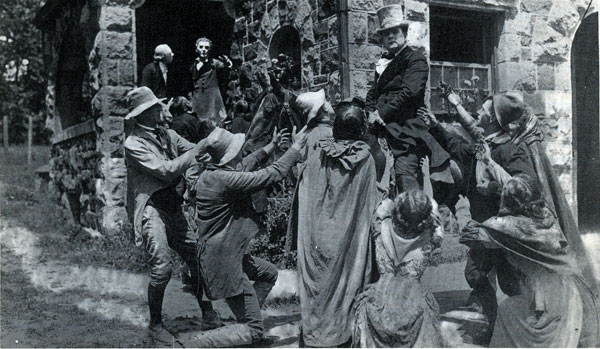


Album: "The Clancy Brothers and Tommy Makem"
Roddy McCorley was a rebel leader who was sentenced to death for his role in the 1798 uprising Ireland. He was executed by hanging in the town of Toome.
"Roody McCorley" is a poem written by Ethna Carbery, an Irish writer and poet. The song Young Roddy McCorley/Roddy McCorley is an adaptation of the poem made by Pat Clancy:
Roddy McCorley
Ho! See the fleet-foot hosts of men
Who speed with faces wan,
From farmstead and from fisher’s cot
Upon the banks of Bann!
They come with vengeance in their eyes
Too late, too late are they
For Roddy McCorley goes to die
On the bridge of Toome today.
Oh Ireland, Mother Ireland,
You love them still the best,
The fearless brave who fighting fall
Upon your hapless breast
But never a one of all your dead
More bravely fell in fray,
Than he who marches to his fate
On the bridge of Toome... (Continues)